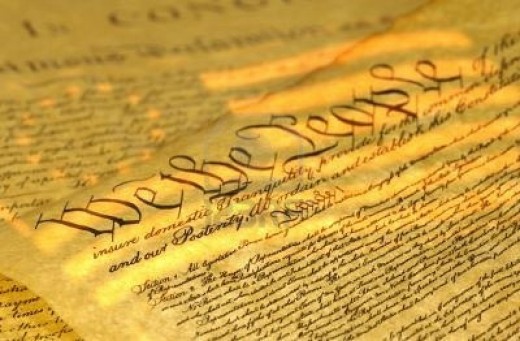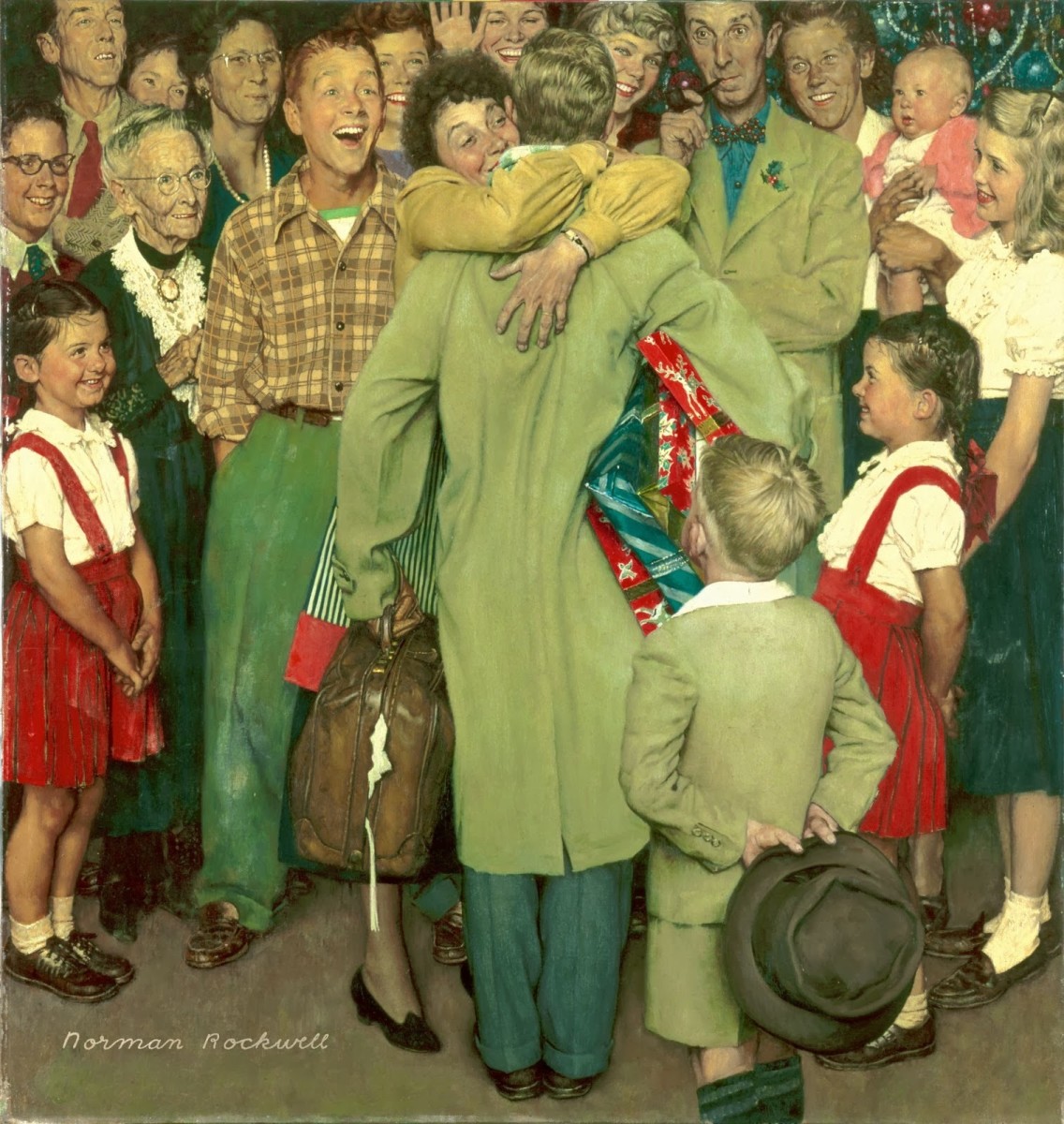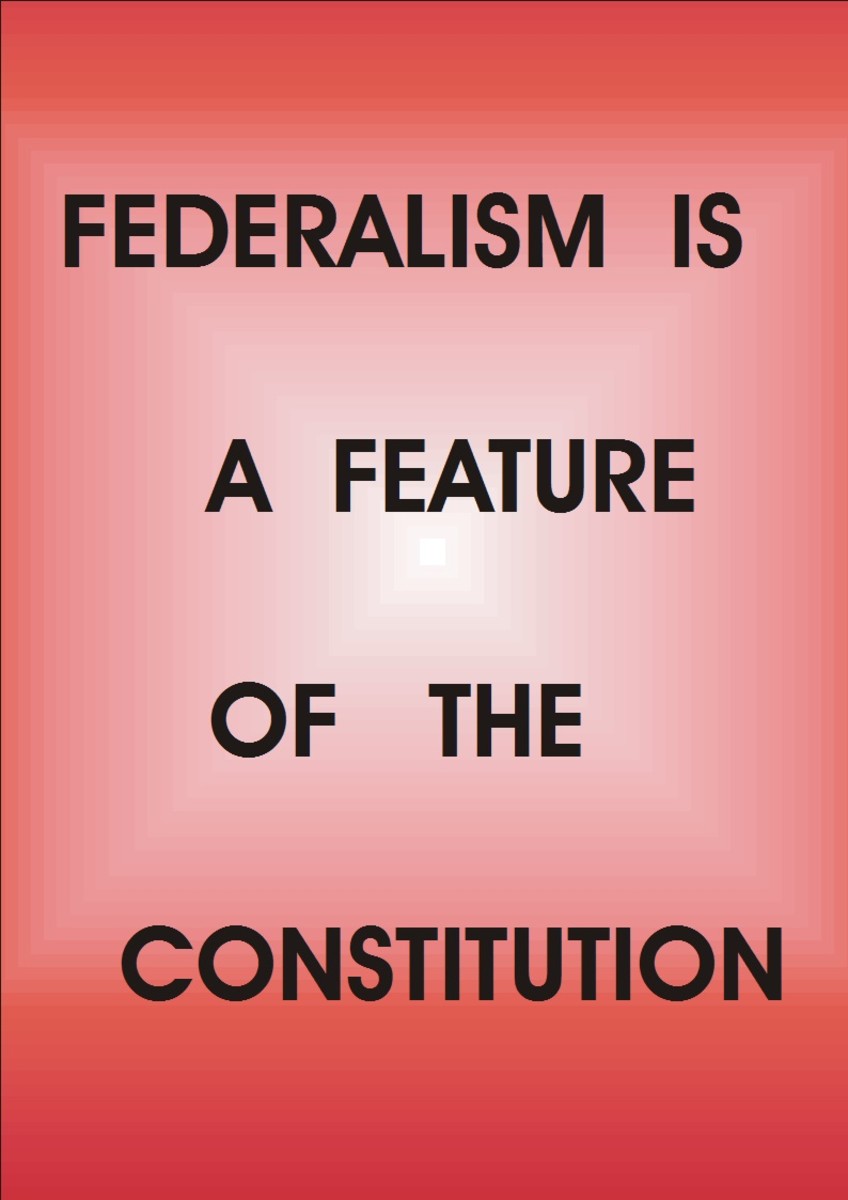Why We Need to Stop Talking About “Gay Marriage”


1. Gay marriage is not a federal issue.
In America, there are three main levels of government: federal or national government, state government, and local or municipal government. We will ignore local government for the time being, because it handles smaller issues, such as traffic and road maintenance, and isn’t relevant to this topic. Most citizens are most familiar with national government, because that gets the most attention in the media.
The distinction between what is a federal issue and what is a state issue is determined in the Constitution. The Constitution specifically enumerates, or lists, what the responsibilities of the federal government (that is, Congress) are in Article I, Section 8. It's basically a list of what the federal government has the ability to make laws about. It's important to note that this does include what is called the elastic clause or the necessary and proper clause. The last line of Article I, Section 8 reads as follows:
To make all Laws which shall be necessary and proper for carrying into Execution the foregoing Powers, and all other Powers vested by this Constitution in the Government of the United States, or in any Department or Officer thereof.
This means that the federal government technically has the power to do anything it deems "necessary and proper" for accomplishing the aforementioned tasks. You can easily see how this can stretch and be "elastic" to cover lots of different things.
Another important part of the Constitution that covers the powers of the different levels of government is the Tenth Amendment. It reads as follows:
The powers not delegated to the United States by the Constitution, nor prohibited by it to the States, are reserved to the States respectively, or to the people.
This means that whatever powers that the Constitution does not specific list as given to the federal government belong either to the state governments, or to the people (that is, the citizens of the United States).
>How does this relate to gay marriage?
Because marriage is a power reserved to the states. Each state sets its own laws regarding marriage, including the age it is legal to get married, who can get married, what sort of paperwork needs to be filed, and so on. The federal government does not regulate marriage.
"Now, hold up," you might say. "You can't say that the federal government can't do something, when you just said that there's an elastic clause that can basically give it the right to do anything."
Well, it's the right to do anything so long as it is in order to accomplish one of the previously enumerated powers given to Congress. Suffice to say that marriage would be far too much of a stretch to fit under any of those banners. There is also something to be said for tradition (not much, which is I'm only devoting one sentence to it!) - historically, marriage is a right that belongs to the states.
2. We cannot legislate rights.
Well, we can, technically, but it's not the best way to make this kind of change.
A lot of people like to compare gay rights to the Civil Rights movement, and specifically, compare gay marriage to interracial marriage. This may very well be a valid comparison, but they fail to carry it to its conclusion: how did the Civil Rights movement ultimately succeed?
Interracial marriage was finally made legal in the Supreme Court case Loving v. Virginia (388 U.S. 1 (1967)). Surely we are all familiar with the landmark Brown v. Board of Education decision (347 U.S. 483 (1954)), and similar cases.
There is a reason for this. Now, as a republic, for the vast majority of things, America defaults to "majority rule": if the majority of the public wants things done a certain way, that's the way it will be done, and the minority just has to deal with it. However, that doesn't fly for certain things; things that we consider fundamental rights.
This is why we have a court system: to force the majority into doing what it doesn't want to in specific instances where the offenses committed are too egregious to be permitted even when the majority wants them.
(As a sidenote, the fundamental rights are very specific, and you probably think you have far more fundamental rights than you actually do.)
In Loving v. Virginia, the Court wrote in its decision:
Marriage is one of the "basic civil rights of man," fundamental to our very existence and survival... To deny this fundamental freedom on so unsupportable a basis as the racial classifications embodied in these statutes, classifications so directly subversive of the principle of equality at the heart of the Fourteenth Amendment, is surely to deprive all the State's citizens of liberty without due process of law. The Fourteenth Amendment requires that the freedom of choice to marry not be restricted by invidious racial discriminations. Under our Constitution, the freedom to marry, or not marry, a person of another race resides with the individual and cannot be infringed by the State.
Without getting too far into legal technicalities, note that the reason given for finding the statute unconstitutional is very important: "To deny this fundamental freedom on so unsupportable a basis as the racial classifications embodied in these statutes... is surely to deprive all the State's citizens of liberty without due process of law," laments the Court.
This brings us to our next point.
3. Sexual orientation is not a protected class.
In addition to our fundamental rights, we have protected classes that it is illegal to discriminate against. The protected classes are:
- Race - Federal: Civil Rights Act of 1964
- Religion - Federal: Civil Rights Act of 1964
- National origin - Federal: Civil Rights Act of 1964
- Age (40 and over) - Federal: Age Discrimination in Employment Act of 1967
- Sex - Federal: Equal Pay Act of 1963 & Civil Rights Act of 1964
- Disability status - Federal: Vocational Rehabilitation and Other Rehabilitation Services of 1973 & Americans with Disabilities Act of 1990
- Veteran status - Federal Vietnam Era Veterans Readjustment Assistance Act of 1974
- Genetic information - Federal: Genetic Information Nondiscrimination Act
What isn't on this list? Sexual orientation. And that's the problem.
Marriage will never cease to be a state-specific issue, but sexual orientation can and should be made a protected class.
This will also prevent states and private entities from discriminating against homosexuals (or any other sexuality) in any other forms - not just in denying them the right to marry.
Could this be done in a law or in a Constitutional amendment? Sure, but the chances of that happening in today's political climate are nil. The best bet for granting equal rights -- historically and to this day -- is through the court system. It is there to grant rights when the majority is against them.
The first step is a change in dialogue.








